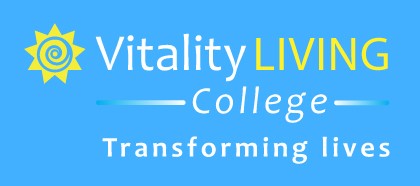What Is A Timeline and How Does It Explain Your Ability To Be Organised Or Not

“Time is free, but it’s priceless. You can’t own it, but you can use it. You can’t keep it, but you can spend it. Once you’ve lost it you can never get it back.” Harvey Mackay
Most people experience time as a line connecting past and future. Think for a moment about something that happened yesterday. Something you saw and heard.
Now think about an experience that occurred a few weeks ago. Both are in the past. From which direction do these experiences seem to come? From the right or left, up or down, in front or behind you?
Now take an event you anticipate happening in the future. From which direction does that seem to come?
When you get a sense of where the past memories and the future hopes come from, notice how they are connected by a line.
This is your timeline. Notice where NOW appears on the timeline. Does it seem to be within your body or outside it?
The Timeline in NLP (Neuro-Linguistic Programming) is how the unconscious organises past experiences, events and memories and how it creates new desired experiences in the future.
Timelines fall into two broad categories.
1. Through Time - Where you experience "now" as being outside your body, usually just in front of you. It is as if you can be a little outside the stream of time, watching it passing. Usually both your past and future experiences seem to be in front of you on a line running from right to left.
2. In Time - The second type is where you experience ‘now’ as being inside your body. This is called IN TiME. if you are an ‘in time’ person, very often your timeline will have the past behind you and the future in front of you.
Planning is much easier for people with a ‘THROUGH TiME". As time is laid out in front of them, it is easier to see and plan the sequence of tasks. They will also expect to make and keep appointments precisely. They find it easy to establish deadlines and take them seriously, while expecting others to do the same. ‘Through time’ is the timeline that is prevalent in the business world, where ‘time is money’
A person with an ‘IN TiME’ is much more focused on the present moment, experiencing things as they happen. They can literally ‘put the past behind them: they will tend to live in a less ordered way and typically will not set deadlines. IN TiME people may seem less dependable and interpret appointments more flexibly. They do not lack the energy or skill; they just do not necessarily connect what they are involved in right now with a planned future.
There is nothing inherently superior about either ‘THROUGH TiME’ or ’IN TIME", it all depends on what you want to do. There are many activities where you will want to be fully in the moment. That is when you want to be ‘IN TiME’ For planning, goal-setting and business meetings a ‘through timeline’ is better.
Once you uncover either your own or your clients timeline, you can coach yourself and your clients to:
- Realise a desired future through a process known as Future Timeline
- To feel calmer and more in control by releasing past root emotions like anger, sadness, fear, hurt and guilt through Timeline Technology
- Clear a past negative memory, traumatic event or phobia by exploring the past and then testing the process is complete in the future, known as Change Past Event
- Clear the root cause of beliefs or emotional hooks, known as Change Belief & Change Personal History.
Love Rangana
P.S. Ⓓɪⓢᴄᴏᴠᴇʀ ᴛʜᴇ ⑦ ⓢᴛᴇᴘⓢ ᴛᴏ ɢʀᴏᴡɪɴɢ ʏᴏᴜʀ Therapy, Healing & Coaching ʙᴜⓢɪɴᴇⓢⓢ ᴛʜʀᴏᴜɢʜ ᴀ ᴏɴᴇ ᴛᴏ ᴏɴᴇ ғʀᴇᴇ ⓢᴛʀᴀᴛᴇɢʏ ⓢᴇⓢⓢɪᴏɴ ᴡɪᴛʜ ᴍʏⓢᴇʟғ. 
In summary, your timeline is how to organise your past, present and future. Whether you perceive your timeline to be inside or outside your body. Through-Time people (outside the body) are considered to be more organised and on time, whereas In-Time (inside the body) people are more flexible with time and in the present moment.
Become a Breakthrough Coach & NLP Practitioner and coach yourself & others to heal, transform and create the life you want.
Our other seminars:
For the full calendar of events.
Other articles you may be interested in:


